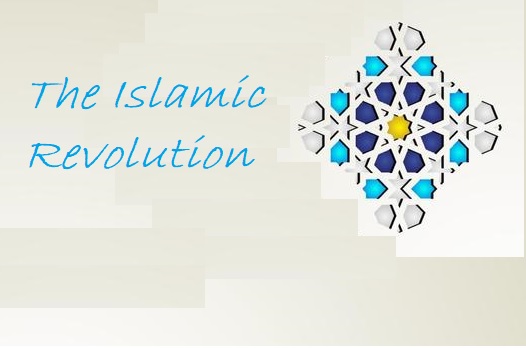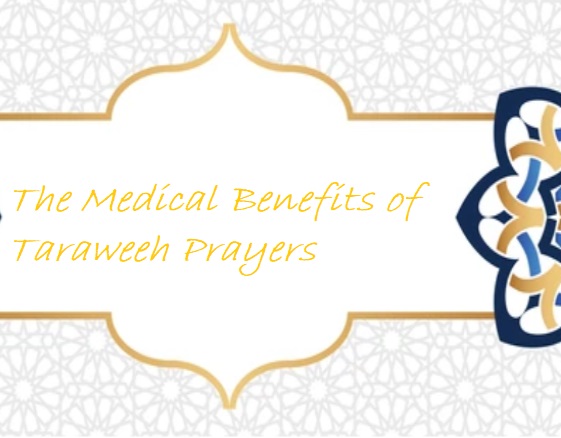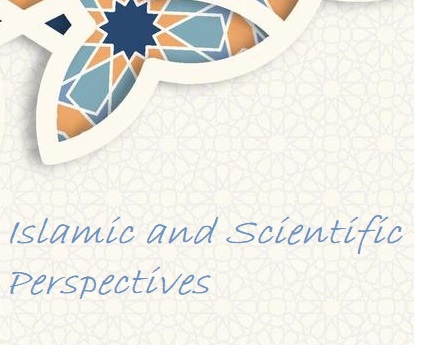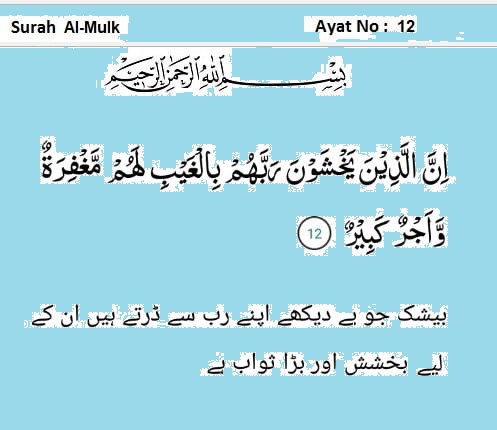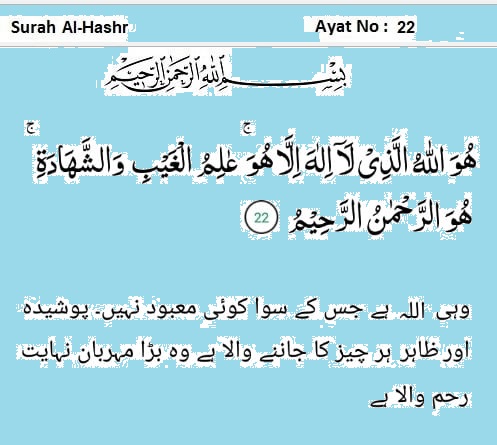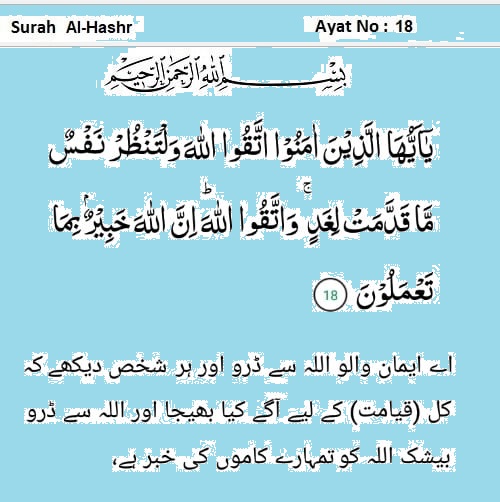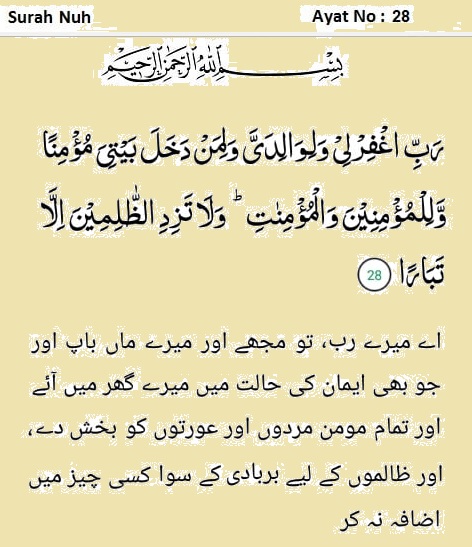The Pleasures of Learning
The Pleasures of Learning
The rise of Muslims to the zenith of civilization in a period of four decades was based on Al-lslam's emphasis on learning. This is obvious when one takes a look at the Qur'an and the traditions of Prophet Muhammad (s) which are filled with references to learning, education, observation, and the use of reason. The very first verse of the Qur'an revealed to the Prophet of Al Islam on the night of 27th of Ramadan in 611 AD reads:
"Read: In the name of thy Lord who created man from a clot. Read: And thy Lord is the Most Generous Who taught by the pen, taught man that which he knew not."
(Quran, 96:1-5)
"And they shall say had we but listened or used reason, we would not be among the inmates of the burning fire."
(Quran, 67:10)
"Are those who have knowledge and those who have no knowledge alike? Only the men of understanding are mindful. "
(Quran, 39:9)
And the Qur'an exhorts the Muslims to do scientific research:.
"And whoso bringeth the truth and believeth therein such are the dutiful."
(Quran, 39:33)
Every Muslim man's and every Muslim woman's prayer should be:
"My Lord! Enrich me with knowledge.."
(Quran, 20:114)
The pursuit of knowledge and the use of reason, based on sense observation is made obligatory on every Muslim, man and woman.
The following traditions of the Prophet (s) supplement the foregoing teachings of the Qur'an in the following way:
Seek knowledge "even though it be in China."
"The acquisition of knowledge is compulsory for every Muslim, whether male or female."
"The ink of the scholar is more sacred than the blood of the martyr."
"Seek knowledge from the cradle to the grave."
"God has revealed to me, 'Whoever walks in the pursuit of knowledge I facilitate for him the way to heaven.'
"The best form of worship is the pursuit of knowledge."
"Scholars should endeavor to spread knowledge and provide education to people who have been deprived of it. For, where knowledge is hidden it disappears."
Some one asked the Prophet (SAS): "Who is the biggest scholar?" He replied: "He who is constantly trying to learn from others, for a scholar is ever hungry for more knowledge."
"Seek for knowledge and. wisdom, or whatever the 'vessel from which it flows, you will never be the loser."
"Thinking deep for one hour (with sincerity) is better than 70 years of (mechanical) worship."
"Worship, without knowledge, has no goodness in it and knowledge without understanding has no goodness in it. And the recitation of the Qur'an, which is riot thoughtful has no goodness in it."
"To listen to the words of the learned and to instill unto others the lessons of science is better than religious exercises."
"Acquire knowledge: it enables its possessor to distinguish right from the wrong, it lights the way to heaven; it is Our friend in the desert, our society in solitude, our companion when friendless- it guides us to happiness; it sustains us in misery; it is an Ornament among friends and an armor against enemies."
The Islamic Empire for more than 1,000 years remained the most advanced and civilized nation in the world. .This is because Al-Islam stressed the importance and respect of learning, forbade destruction, developed in Muslims the respect for authority, discipline, and tolerance for other religions. The teachings of Qur'an and Sunnah drove many Muslims to their accomplishments in science and medicine.
By the tenth century their zeal and enthusiasms for learning resulted in all essential Greek medical and scientific writings being translated into Arabic in Damascus, Cairo, and Baghdad. Arabic became the international language of learning and diplomacy. The center of scientific knowledge and activity shifted eastward, and Baghdad emerged as the capitol of the scientific world. The Muslims became scientific innovators with originality and productivity.
For example Islamic medicine is one of the most famous and best known facets of Islamic civilization, and in which the Muslims most excelled. The Muslims were the great torchbearers of international scientific research. Some of the best and most eloquent praises of science ever written came from the pens of Muslim scientists who considered their work to be acts of worship. The same motives led to the establishment of Al-Azhar (800 AD) the first university in the world. They hit the "source ball of knowledge" over the fence to Europe. In the words of Campbell, "The European medical system is Arabian not only in origin but also in its structure. The Arabs are the intellectual forebearers of the Europeans."
One of the secrets of success in any profession is to be the most learned or best-informed person in his/her own profession. Learning is a pleasure. It is not, then one should cultivate the enjoyment associated with learning. Although the pleasure of learning is universal, there are many dull incurious people in the world. There are several reasons for this. Some people are made dull by bad teaching, isolation and following a routine life-style. For some people it is the pressure of hard work and poverty. For those who are rich, their ephemeral and trivial delights come in the way of the pleasures of learning. The human mind can survive not only poverty but also even wealth with luck, determination and guidance. For example I come from a poor family and due to poor teaching I lost interest in learning mathematics. As a result I scored only 39% in mathematics (35% required for a pass) in S. S. L. C. (Secondary School Leaving Certificate, India) in the Intermediate Science examination I scored 50% in mathematics. When I entered the Bachelor of Science degree class, I realized there is no way I can escape from mathematics and I resolved to conquer mathematics. With determination I found pleasure in learning mathematics by myself. The pleasure was akin to one derives in falling love with his/her beloved girl/boy friend or would be wife/husband. This pleasure changed my whole life. I started to score 100% in mathematics in all the class tests and mid-term examinations. In the final B.Sc. examination I scored more than 70% in mathematics.
Take the example of Archimedes. When he discovered the principle of specific gravity by observing his own displacement of water in a bath tub, he leaped out with great joy, and shouted, "Eureka, Eureka!" ("I have found it. I have found it!"). He was overwhelmed with joy and ran naked. All children possess the same instinct which prompted his outburst, and the rapture of its Gratification.
Learning is a natural pleasure. This pleasure is inborn and instinctive. The pleasure of learning is one of the essential pleasures of the human race. Without learning, survival itself is threatened. It is said that the propagation of the human race might be endangered if the knowledge of sex through seeing, reading or hearing is withheld from everyone.
The process of learning starts right after birth. It is true that babies who can barely talk investigate problems with all the zeal and excitement of explorers, make discoveries with the passion and absorption of dedicated scientists. At the end of each successful investigation, one can see on the tiny face an expression of innocent and pure heartfelt pleasure. The process of physical growth stops when a boy or girl reaches puberty, that is with the on set of menarche in the girls and with the change in the voice and growth of moustache and beard in boys. After puberty it is impossible to increase the height both in boys and girls. It is only possible to increase their widths by fattening. On the other hand the mental faculties grow from birth until death. At some point in our lifetime, the physical body becomes sick or ill and gradually dies; even the emotions become duller. But the mind continues to live, and even grows more lively and active, enjoys itself more, works and plays with more expansion and delight. I have seen grand parents obtaining B. A., M. A and Ph. D. degrees at the ages of 70, 80 or 90. There are many examples in the history of Art, Music and Science, of both men and women who significantly contributed and lead mentally productive lives at their ripe old ages. My own grandmother at 90 has vivid memories and narrates events, which occurred 70 or 80 years ago in her young age, very clearly. Learning extends our lives into new dimensions. It is cumulative. Instead of diminishing in time, like health and strength, its dividends go on increasing, provided one continues to learn throughout life and integrate the thoughts and make learning harmonious. One should make it a point to learn at least one new information each day. Now one can learn even during sleep. This is accomplished with headphones attached to the ears and repeats playing of phonographs or taped cassettes. This method of sleep-learning is found most useful in linguistics- to learn new languages.
The pleasure of learning is not confined to learning from textbooks, which are too often tedious. But it does include learning from book magazines (periodicals), newspapers, and movies. T. V., radio and traveler when you stand in a big library infront of thousands of books do not think they are lumps of lifeless paper, but minds alive on the shelves. Each has its own voice, which is as inaudible as the radiobroadcast waves falling directly on t ears. Just as one switches on the radio to hear. So does one just need to open a book to hear the voice far distant in time and space? One can hear the voice speaking, mind to mind, and heart to heart. Reading of books gives you two different delights. One is the pleasure of understanding the unknown and the unexpected. The other pleasure is of deepening one's knowledge of a specified field.
Apart from books, learning means keeping the mind open and active to receive all kinds of experience. The Mahabharatha says " Learn from the Environment and absorb the good things." As pointed out earlier there is great emphasis on learning and seeking knowledge in Islam. The Prophet Mohammed ordered Muslims to be active in their search for learning, crossing oceans and continents if necessary. " Seek knowledge even in China" he said. Learning also means learning to practice one' s own professional skills-that of a surgeon, musician or craftsman. Otherwise one can at least develop the ability l appreciate an art. Crafts and hobbies lead you into fresh fields of enjoyment and give you relaxation and activity without tension. You should know that tension is the prime cause of heart attacks, ulcers, hypertension, and most of the human diseases. Travel is an important part of the pleasures of learning. There are many examples of best-informed people who never read books and newspapers, but acquired excellent knowledge through travelling. One should travel with an open mind, all alert eye and a wish to understand other people and other places.
Everybody knows ''Knowledge is Power" but now I can say "Knowledge is Wealth". For the more learned you are, the more money you can earn. It is fitting here to tell you the story of Diogenes, the great Greek philosopher who lived during the time of Alexander the Great. Diogenes was a very learned man and he shunned both power and wealth. Hence he was called a cynic. He was known to have wandered searching for an honest man carrying a lantern during day and night. He gave up everything he possessed, except a coconut shell for drinking water. One day he saw a man drinking water forming a cup with his hand. After seeing this Diogenes threw away his last possession the coconut shell. The name of Diogenes spread throughout Greece. Alexander the Great heard about Diogenes and one day decided to see him. Mounted on horseback, Alexander the Great went to Diogenes who was sitting on the ground. Alexander said ' Oh Diogenes, I have heard a great deal about you and your life. I am very much impressed by your life and it is my earnest desire to help you in whatever way I can. Please let me know your desires so that I can fulfil them". To which Diogenes replied "Your Excellency my only request is that you get aside and allow the sun's rays to fall on my body." Alexander the Great was deeply moved by Diogenes's reply and said "If I were not Alexander the Great. I would be Diogenes." Now the point I want to make here is that Diogenes never went to Alexander the Great, but that Alexander the Great came to Diogenes for he was such a learned philosopher.
There are many people in this world who have played themselves to death, or eaten and drunk themselves to death. Nobody ever died because of thinking or learning. People who avoid learning, or abandon it, find no joy in life, find that life is drained dry. No learner has ever run short of subjects to explore. The pleasures of learning lead to happiness. One can live longest and best and most rewardingly by attaining and preserving the happiness of learning. Learning is everyone's birthright. Everyone - young or old, rich or poor, male or female, has access to learning. Exercise your birthright. Remember what you have learned cannot be stolen by others.


